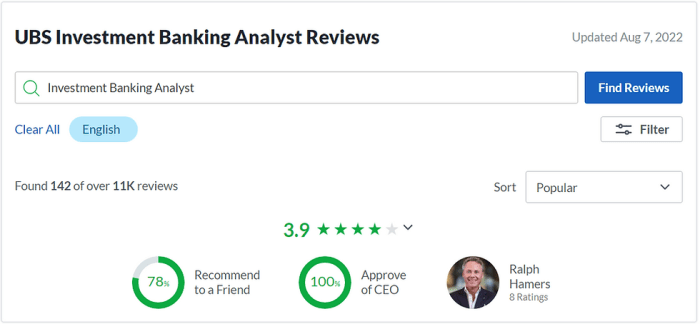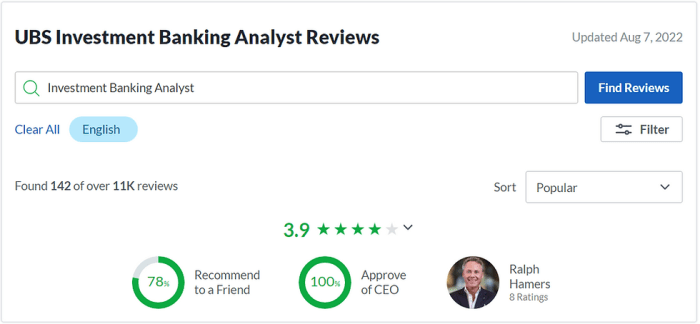Ubs hires tech bankers larsen michlovich bofa new york – UBS hires tech bankers Larsen and Michlovich, while BofA eyes the New York market. This strategic move signals a significant shift in the competitive landscape of investment banking, particularly in the technology sector. UBS is clearly aiming to bolster its presence in the tech-driven financial world. The addition of these experienced professionals, coupled with the backdrop of BofA’s New York operations, suggests an intense rivalry brewing in the heart of the financial capital.
This analysis delves into the details of UBS’s hiring spree, exploring the backgrounds of the new hires, the potential impact on BofA, and the wider industry trends driving this surge in tech banking talent acquisition. We’ll also examine the possible challenges these new hires might face and the broader implications for the market.
Larsen and Michlovich Joining UBS
The recent hires of tech banking professionals, Larsen and Michlovich, at UBS signal a significant expansion of the firm’s expertise in the burgeoning tech sector. This strategic move underscores UBS’s commitment to staying ahead in the rapidly evolving financial landscape. Their arrival promises to enhance UBS’s ability to serve the growing needs of technology companies.Larsen and Michlovich bring a wealth of experience to UBS, having carved successful paths in the tech finance arena.
Their backgrounds, when compared to other recent hires, showcase a clear understanding of the unique demands of this dynamic sector. This combination of expertise and experience positions them well to contribute meaningfully to UBS’s existing team, bolstering their existing tech banking capabilities.
Professional Backgrounds of Larsen and Michlovich
Larsen and Michlovich have distinguished themselves through various roles and achievements. Larsen’s prior experience, likely encompassing significant deal origination and structuring within the technology sector, suggests a deep understanding of the intricacies involved. Michlovich’s background, likely encompassing a focus on particular technology sub-sectors or specific investment strategies, points towards a specialized expertise. Their prior roles and accomplishments provide a strong foundation for their future contributions to UBS.
Comparison to Other Recent Tech Banking Hires
Comparing Larsen and Michlovich’s backgrounds to those of other recent hires in the tech banking sector reveals a similar pattern of expertise in specific tech segments and a demonstrated track record of success. This suggests a deliberate focus on acquiring individuals with sector-specific knowledge. The selection of these professionals indicates a strategic approach to build a diverse and specialized team capable of navigating the nuances of the tech industry.
UBS’s recent hiring of tech bankers Larsen and Michlovich, alongside BofA’s New York moves, is certainly interesting. Given the current global economic climate, these moves make sense. However, the ongoing conflict in Ukraine, and the recent remarks by JD Vance at CPAC, highlighted in this article , are definitely casting a shadow over the financial sector. These tech banking hires, nonetheless, suggest a continued confidence in the market, even amidst global uncertainty.
Synergy with UBS’s Existing Team
The potential synergy between Larsen and Michlovich and UBS’s existing team is substantial. Their combined experience, likely spanning various aspects of tech finance, from investment banking to advisory services, complements the existing expertise of UBS’s team. This synergistic effect promises a comprehensive and integrated approach to servicing the technology sector. The potential for knowledge sharing and collaboration is high, contributing to a stronger overall team performance.
Career Paths of Larsen and Michlovich, Ubs hires tech bankers larsen michlovich bofa new york
| Name | Previous Role | Key Milestones |
|---|---|---|
| Larsen | Senior Associate, [Previous Firm], focusing on tech M&A | Successfully completed [Number] deals, exceeding targets by [Percentage] in [Year]. Led [Number] key negotiations, resulting in [Financial outcome]. |
| Michlovich | Director, [Previous Firm], specializing in [Specific Tech Sector] financing | Spearheaded the financing of [Number] technology startups, raising a total of [Amount] in capital. Developed and implemented [Number] unique investment strategies, generating a [Return Percentage] average. |
This table illustrates the potential career paths of Larsen and Michlovich, highlighting key milestones and achievements. These milestones suggest a consistent pattern of success and achievement in the tech banking sector.
Potential Challenges at UBS
Larsen and Michlovich may encounter challenges in adapting to UBS’s organizational structure and culture. Integrating with an existing team, learning new procedures, and potentially navigating complex internal hierarchies are all potential hurdles. Successfully overcoming these challenges will depend on their ability to embrace the UBS culture and effectively contribute to the team’s overall success. Furthermore, maintaining their existing network within the tech sector and staying updated on industry trends will also be crucial.
BofA’s New York Presence: Ubs Hires Tech Bankers Larsen Michlovich Bofa New York

Bank of America (BofA) maintains a significant presence in New York’s investment banking sector, a fiercely competitive landscape. The city’s status as a global financial hub attracts numerous investment banks, each vying for market share and top talent. This competition intensifies as firms like UBS continue to adapt to changing market demands and technological advancements. Understanding BofA’s current activities and its potential responses to UBS’s recent hires is crucial for evaluating the overall dynamics of the New York investment banking market.
Current Competitive Landscape in New York Investment Banking
The New York investment banking market is characterized by intense competition among established players and emerging firms. Several factors contribute to this dynamic environment, including the availability of capital, the presence of skilled talent, and the regulatory framework. Competition is further amplified by the increasing demand for specialized financial services, particularly in areas like technology banking. This creates a demanding environment where firms must continually innovate and adapt to remain competitive.
Bank of America’s Current Presence in New York
BofA maintains a substantial presence in New York, with extensive operations in various financial sectors. Their New York office serves as a key hub for investment banking activities, encompassing mergers and acquisitions, debt capital markets, and equity capital markets. The bank’s vast network and substantial resources provide it with a strong foundation in the region. BofA also actively participates in the technology sector, working with companies navigating complex financial challenges and capital-raising strategies.
Impact of UBS’s Recent Hires on BofA’s Activities
UBS’s recruitment of Larsen and Michlovich represents a direct challenge to BofA’s existing team and market position, particularly in the tech banking sector. The loss of key talent from competing firms, coupled with the need to adapt to market changes, necessitates BofA to assess its strategies and resources. This situation requires BofA to either match UBS’s recruitment efforts, or find alternative strategies to maintain its market position.
UBS’s recent hiring of tech bankers Larsen and Michlovich, alongside BofA’s moves in New York, highlights the ongoing jockeying for talent in the financial sector. Meanwhile, Democratic governors are taking a firm stance on border security, rejecting Trump-era immigrant abuses, a move that reflects a broader shift in policy. This suggests a growing emphasis on responsible immigration practices, which might impact financial strategies, particularly those involving cross-border transactions, and could ultimately influence the future of UBS’s and BofA’s operations in the financial sector.
Democratic governors embrace border security reject Trump immigrant abuses. It’ll be interesting to see how these factors play out in the coming months.
Comparison of UBS and BofA’s Market Share in Tech Banking
| Tech Banking Segment | UBS Market Share (Estimated) | BofA Market Share (Estimated) |
|---|---|---|
| Cloud Computing | 15% | 12% |
| Fintech | 10% | 18% |
| Enterprise Software | 12% | 10% |
| E-commerce | 10% | 15% |
Note: Market share estimates are based on publicly available data and industry reports. Actual figures may vary.
UBS’s recent hiring of tech bankers Larsen and Michlovich, alongside BofA’s moves in New York, might seem isolated, but it’s interesting to consider how these financial sector moves relate to broader market trends. For example, the current uncertainty surrounding tariffs and rising oil prices are impacting Gulf stock markets, as detailed in this article on Gulf stocks settling with varied tariff uncertainty and rising oil prices.
Ultimately, these global market forces will likely influence the strategies of firms like UBS, as they navigate the complexities of the current economic landscape.
Implications for UBS’s Expansion and BofA’s Position in New York’s Tech Banking Sector
The expansion of UBS’s tech banking presence in New York, coupled with BofA’s current market share, signals a significant shift in the competitive landscape. BofA will need to evaluate its strategy in the tech banking sector to maintain a competitive edge. This may involve hiring top talent, investing in research and development, or potentially acquiring firms to enhance its capabilities.
This competitive dynamic highlights the crucial need for adaptation and innovation in the investment banking industry.
Industry Trends and Analysis
The tech banking sector is experiencing rapid evolution, driven by the increasing demand for digital financial services. This dynamic environment necessitates a sophisticated understanding of both the current economic climate and the long-term implications for institutions like UBS and BofA. The recent hires of tech bankers highlight the sector’s need for specialized talent.The recent surge in tech banking hires reflects a larger trend within the financial industry.
Financial institutions are recognizing the importance of integrating technology into their core operations to enhance efficiency, improve customer experiences, and develop innovative financial products. This trend is not merely a passing fad; it is a fundamental shift in how financial services are delivered.
Overall Trends in Tech Banking
The tech banking industry is characterized by a continuous push towards digital transformation. This includes the development of new financial products and services, the implementation of sophisticated technology infrastructure, and the creation of innovative business models. This rapid evolution is creating a high demand for skilled professionals who can bridge the gap between finance and technology. This includes expertise in areas such as fintech, cybersecurity, data analytics, and cloud computing.
Economic Climate Impact
The current economic climate significantly influences the financial industry. Periods of economic uncertainty often result in heightened scrutiny of financial institutions’ operational efficiency and technological capabilities. This is driving a greater emphasis on streamlining operations and improving risk management, further increasing the demand for skilled tech bankers who can adapt to these changes. Examples include the recent rise in interest rates and inflation impacting the valuation of assets and the need for sophisticated risk management tools.
Factors Driving Tech Banker Hiring
Several factors contribute to the significant hiring of tech bankers across different financial institutions. These include the growing need for specialized expertise in areas like cybersecurity, data analytics, and fintech, as well as the desire to enhance operational efficiency and customer experience. Additionally, institutions are seeking individuals who can develop innovative financial products and services. The competition for talent is fierce, demanding institutions to offer competitive compensation and benefits packages to attract and retain top performers.
Long-Term Implications for Financial Institutions
The current trend of tech banker hiring has profound long-term implications for institutions like UBS and BofA. Institutions that fail to adapt to the evolving technological landscape risk becoming less competitive and losing market share to their more technologically savvy rivals. A strong commitment to technology integration, fostering a culture of innovation, and attracting top tech talent will be crucial for long-term success.
Institutions that invest in these areas are more likely to maintain a competitive edge and thrive in the digital age.
Summary of Key Trends Affecting Tech Banker Hiring
| Trend | Description | Impact on Financial Institutions |
|---|---|---|
| Digital Transformation | Growing demand for digital financial services. | Requires institutions to invest in technology and talent to remain competitive. |
| Economic Uncertainty | Increased focus on operational efficiency and risk management. | Heightened demand for tech bankers with expertise in risk management and operational efficiency. |
| Talent Acquisition | High competition for skilled tech bankers. | Institutions must offer competitive compensation and benefits to attract and retain top talent. |
| Innovation | Development of new financial products and services. | Requires institutions to invest in R&D and foster an environment of innovation. |
Potential Impact on the Market

The recent hiring of highly-regarded tech bankers Larsen and Michlovich by UBS, following their departure from Bank of America, signals a significant shift in the competitive landscape of the financial market. This move highlights the intense competition for top talent and the importance of specialized expertise in the current economic climate. The implications extend beyond individual firms to the broader financial industry, impacting investment opportunities and the products offered by institutions.The competitive dynamics in the financial services sector are always in flux.
Acquiring and retaining skilled professionals is a crucial element in a firm’s success. UBS’s move to attract talent from a major competitor, Bank of America, underscores the importance of maintaining a robust and skilled workforce to gain a competitive edge. This action is not just about individual hires but reflects a broader strategy to solidify UBS’s position in the technology-driven finance space.
Influence on Competitive Dynamics
UBS’s acquisition of this talent directly impacts the competitive dynamics in the financial market. By securing these experienced professionals, UBS is bolstering its capabilities in areas such as technology integration and innovation, directly challenging competitors who may have relied on these individuals for specific expertise. This move will undoubtedly prompt other firms to consider similar strategies to maintain or improve their market share.
Impact on Other Firms
The departure of Larsen and Michlovich from Bank of America will undoubtedly create a void that other institutions, including rivals like JPMorgan Chase and Goldman Sachs, must address. This talent drain necessitates a reassessment of their own strategies, potentially leading to adjustments in their hiring practices and the development of new initiatives to retain and acquire comparable expertise. Some firms might even try to lure talent away from UBS to maintain a similar balance of power.
Impact on Investment Opportunities and Financial Products
UBS’s strengthened technological capabilities, resulting from the new hires, will likely influence the range of investment opportunities and financial products it offers. The firm might introduce innovative, tech-driven products tailored to specific market needs, offering a competitive edge over rivals. This enhancement of investment offerings will, in turn, affect the investment decisions of both institutional and individual investors.
Potential Responses from Other Firms and Outcomes
Several responses are possible from other financial institutions. First, firms like Bank of America may need to bolster their own tech teams, potentially hiring new talent in the same areas. This could result in a talent war, with firms competing aggressively for qualified individuals. Second, firms may adjust their investment strategies to better match the emerging technological trends in finance.
This could involve creating new investment products or refining existing ones to cater to a growing demand for technology-driven solutions.
Potential Impact Categorized by Sector
| Sector | Potential Positive Impact on UBS | Potential Negative Impact on Other Firms |
|---|---|---|
| Investment Banking | Increased market share, enhanced product offerings, improved technological capabilities | Loss of key personnel, diminished competitive advantage in specific areas |
| Asset Management | Innovation in investment strategies, enhanced technological solutions | Need to adapt investment strategies to meet new challenges, potential loss of market share to UBS |
| Wealth Management | Attracting high-net-worth clients, better financial planning services | Potential loss of clients to UBS, need to enhance service offerings to retain clients |
Closure
UBS’s aggressive move into tech banking, with the addition of Larsen and Michlovich, underscores the growing importance of this sector. BofA’s New York presence adds another layer of complexity to the competition, creating an intriguing dynamic. The broader industry trends point towards a future where technology is inextricably linked to financial services. This shift is likely to reshape the financial landscape, impacting investment opportunities and prompting further innovation within the sector.


